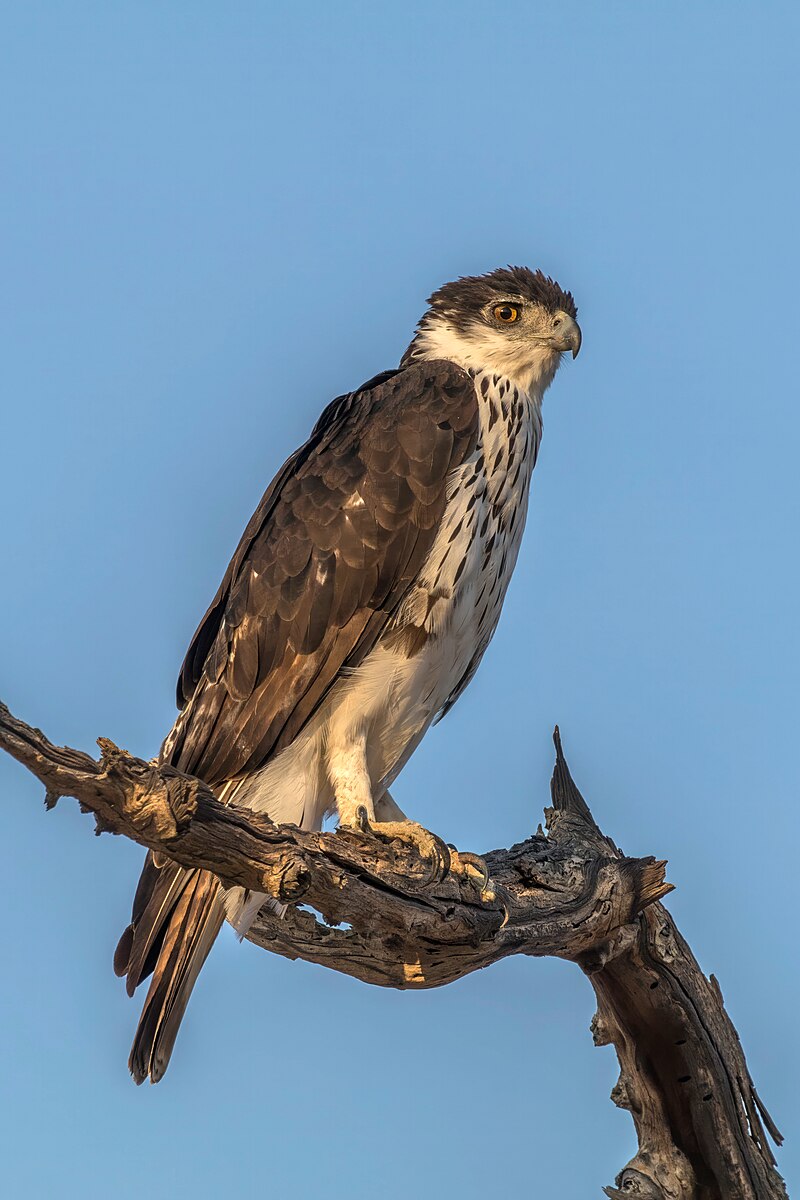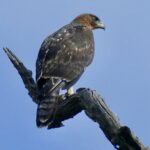African hawk eagles, scientifically known as Aquila spilogaster, are powerful birds of prey that primarily hunt small to medium-sized mammals and birds. They are known for their strong grip and are often described as the most powerful raptor in Africa. When it comes to their sleeping habits, African hawk eagles have unique characteristics that set them apart from other birds.
The Vigilant Sleep of African Hawk Eagles
Unlike humans, who enter a deep sleep, African hawk eagles do not close their eyes and fully rest. Instead, they enter a state of vigilance, where they remain alert to potential threats while resting. This is a common trait among birds of prey, as they need to be ready to defend themselves and their territory at all times.
When African hawk eagles sleep, they typically perch in the cover of foliage, particularly in well-wooded areas. They may also roost on man-made structures such as pylons. While they have their eyes closed, their heads remain upright, allowing them to quickly open their eyes and take flight if necessary.
Unihemispheric Slow-Wave Sleep
 Image source: African hawk-eagle by Charles J. Sharp
Image source: African hawk-eagle by Charles J. Sharp
Studies on other birds of prey have revealed that they often enter a state of unihemispheric slow-wave sleep. This means that one half of the brain sleeps while the other half remains alert, enabling the bird to rest while still being able to detect and respond to potential threats.
Although there is limited information specifically on the sleeping habits of African hawk eagles, it is likely that they exhibit a similar sleep pattern. This allows them to conserve energy while still maintaining a level of vigilance to protect themselves and their territory.
Sleep Duration and Patterns
Birds, in general, require less sleep than mammals, with an average of around 12 hours of sleep per day. However, this can vary widely depending on the species and its lifestyle. Nocturnal birds may sleep during the day and be active at night, while diurnal birds like the African hawk eagle are active during the day and sleep at night.
Factors Affecting African Hawk Eagle Sleep
Several factors can influence the sleep patterns of African hawk eagles, including:
-
Habitat: The type of habitat they inhabit can affect their sleeping patterns. For example, those living in well-wooded areas may have different sleep patterns than those in more open environments.
-
Prey Availability: The availability of their primary prey, such as small to medium-sized mammals and birds, can impact their sleep patterns as they need to be alert and ready to hunt.
-
Predator Presence: The presence of predators in their territory can also influence their sleep patterns, as they need to remain vigilant to protect themselves and their young.
-
Breeding Season: During the breeding season, African hawk eagles may have different sleep patterns as they focus on nesting, incubating eggs, and caring for their young.
Conclusion
In conclusion, the sleeping habits of African hawk eagles are unique and adapted to their role as powerful birds of prey. They enter a state of vigilance, with one half of the brain remaining alert while the other half rests, allowing them to conserve energy while still being able to respond to potential threats. Understanding the sleep patterns of these impressive raptors is crucial for their conservation and the overall understanding of their behavior and ecology.
References:
– https://animalia.bio/african-hawk-eagle/
– https://carnivora.net/african-hawk-eagle-aquila-spilogaster-t7795.html
– https://en.wikipedia.org/wiki/Crowned_eagle
– https://en.wikipedia.org/wiki/African_hawk-eagle
– https://peregrinefund.org/explore-raptors-species/eagles/african-hawk-eagle
– http://www.nature.com/neuro/journal/v10/n5/full/nn1502.html
– https://www.sciencedirect.com/topics/neuroscience/bird-sleep


